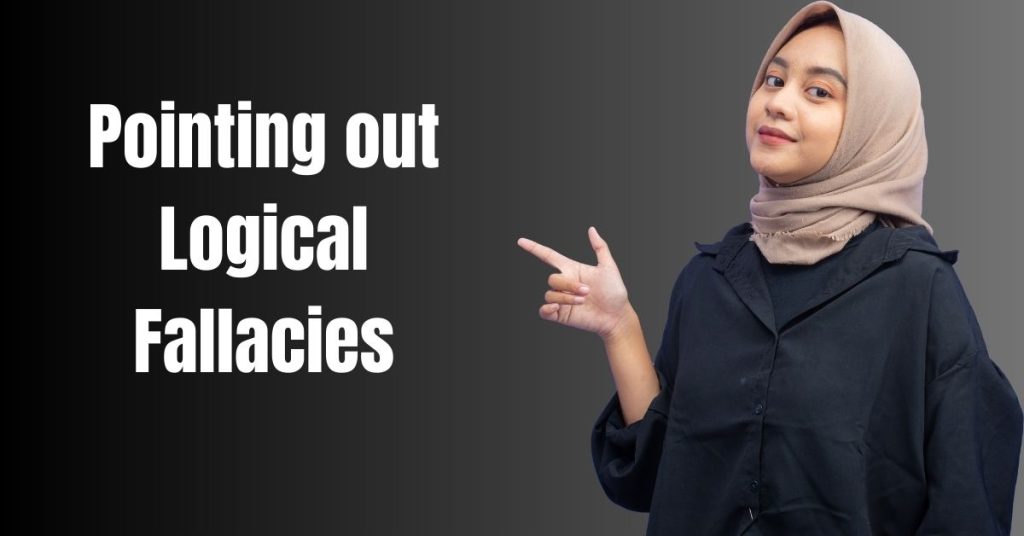Discover the most epic comebacks to “Best Replies to I beg to differ”! Unleash your verbal prowess with these clever and witty responses. Get ready for some serious debate fireworks!
This article aims to provide readers with effective strategies for responding to the statement, ‘I beg to differ.’
Engaging in meaningful discussions and debates often requires individuals to present their viewpoints and challenge opposing perspectives. However, it is crucial to do so in a respectful and constructive manner.
This article will explore various approaches that can be employed when faced with someone who disagrees by offering suggestions such as:
- Presenting supporting evidence
- Offering a different interpretation
- Pointing out logical fallacies
- Providing real-life examples
- Challenging assumptions
- Requesting clarification
- Encouraging open-mindedness
- Suggesting further research
- Seeking common ground
By employing these strategies, individuals can engage in productive dialogues that promote understanding and growth while fostering an environment of mutual respect.
Best Replies To I Beg To Differ: Respectfully, our perspectives diverge. Let’s explore both sides.
Presenting Supporting Evidence

One essential aspect of presenting a strong argument is supporting evidence that can withstand critical scrutiny. When engaging in a discussion where opposing viewpoints are expressed, it becomes crucial to back one’s claims with credible evidence. This adds credibility to the argument and demonstrates respect toward the audience by offering them well-founded information.
By presenting solid evidence, individuals can effectively counter an opposing viewpoint and strengthen their position. Reliable sources such as peer-reviewed studies, expert opinions, and statistical data can provide a robust foundation for one’s argument.
Furthermore, incorporating multiple sources and perspectives enhances the validity of the supporting evidence and fosters a more comprehensive understanding of the topic at hand.
In conclusion, compelling arguments are built upon substantial supporting evidence that appeals to reason and serves the audience’s desire for reliable information.
Offering a Different Interpretation
An alternative perspective can be offered to present an alternate interpretation. Instead of simply disagreeing with someone’s point of view, providing a different interpretation that adds depth and complexity to the discussion can be beneficial.
By offering an alternative perspective, individuals can broaden their understanding and consider differing viewpoints. This approach allows for a more inclusive and balanced conversation where all voices are heard and respected.
It is important to remember that offering a different interpretation does not invalidate someone else’s opinion but enriches the overall discourse by encouraging critical thinking and open-mindedness.
By presenting alternative perspectives, we foster intellectual growth and create an environment where diverse ideas can coexist harmoniously.
Pointing out Logical Fallacies

Identifying logical fallacies is crucial to engaging in intellectual discourse, as it allows for the critical analysis of arguments and ensures that they are based on sound reasoning and evidence.
One can effectively challenge flawed or weak arguments by pointing out logical fallacies. For instance, if someone says, ‘I beg to differ because everyone knows it’s true,’ this statement commits the fallacy known as argumentum ad populum or appeal to popular opinion.
This fallacy relies on the belief that something must be true simply because many believe it to be so. By identifying this fallacy, one can highlight the lack of substantive evidence supporting their claim and encourage a more rational approach to the discussion.
In doing so, intellectual discourse can be enriched by promoting thoughtful and well-supported arguments.
Providing Real-life Examples
Exemplifying the practical application of identifying logical fallacies, a real-life situation occurred during a political debate when a candidate employed the ad hominem fallacy by attacking their opponent’s character rather than addressing the actual issues at hand.
Instead of a substantive discussion on policy matters, the candidate resorted to personal attacks and derogatory remarks, attempting to discredit their opponent’s credibility and divert attention from the topic under consideration.
By doing so, they failed to provide valid arguments and undermined the integrity of the debate itself.
This example highlights the importance of recognizing logical fallacies in real-life situations. It emphasizes the need for individuals to focus on addressing pertinent issues rather than resorting to personal attacks or irrelevant distractions.
Promoting rational reasoning and avoiding logical fallacies in any form of discourse is crucial to foster meaningful dialogue and serving others effectively.
Challenging Assumptions
Challenging assumptions requires critical thinking and a willingness to question the validity of beliefs or ideas. Individuals can uncover hidden biases, expose flawed reasoning, and promote intellectual growth by challenging assumptions. In doing so, one must approach the task objectively and open-mindedly.
It is important to gather evidence, analyze facts, and consider alternative perspectives before concluding. Moreover, questioning assumptions allows for exploring new possibilities and encourages innovation in problem-solving. By challenging assumptions, individuals can contribute to a more informed and balanced discourse that fosters understanding and empathy.
This process requires active engagement with diverse viewpoints and a commitment to intellectual humility. Ultimately, challenging assumptions catalyze personal growth and societal progress by promoting critical thinking skills essential for navigating complex issues in an interconnected world.
Requesting Clarification
We explored the significance of challenging assumptions in discussions in the preceding subtopic. Now, let us delve into another crucial aspect of effective communication: requesting clarification.
This entails seeking further information or elaboration on a particular point to enhance understanding and promote constructive dialogue. By requesting clarification, individuals demonstrate an active commitment to comprehending opposing viewpoints thoroughly and ensuring that their responses are well-informed.
This approach serves not only to facilitate mutual understanding but also to foster a respectful and inclusive environment for all participants involved. Requesting clarification is particularly valuable in situations where initial statements may be ambiguous or require additional context for interpretation.
Employing this technique can enable individuals to navigate complex conversations with precision and nuance, ultimately contributing to more fruitful exchanges of ideas.
Encouraging Open-mindedness
Encouraging open-mindedness is essential for fostering a diverse and inclusive environment that promotes constructive dialogue and exchanging ideas. By encouraging individuals to approach differing opinions with an open mind, we create opportunities for personal growth, intellectual development, and the cultivation of empathy.
Open-mindedness allows us to challenge our beliefs and consider alternative perspectives, leading to increased understanding and tolerance. Moreover, it fosters an atmosphere where individuals feel comfortable expressing their thoughts without fear of judgment or rejection.
In a society that desires serving others, embracing open-mindedness enables us to engage in meaningful conversations that can lead to innovative solutions and positive social change.
Emphasizing the value of being receptive to different viewpoints ultimately enhances our ability to collaborate effectively and build stronger communities.
Suggesting Further Research

Transitioning from encouraging open-mindedness, another effective way to respond to someone who says, ‘I beg to differ‘ is by suggesting further research.
This approach promotes intellectual growth and encourages individuals to explore different perspectives and gather more information before forming a final opinion.
By recommending additional research, we acknowledge the importance of expanding one’s knowledge base and considering alternative viewpoints.
This can be done by referring to credible sources such as scholarly articles, books, or reputable websites that provide well-researched and balanced arguments on the topic at hand.
Suggesting further research allows for a deeper understanding of the subject matter and fosters a culture of continuous learning and informed decision-making.
It empowers individuals to make well-informed judgments based on evidence rather than personal biases or limited information.
Seeking Common Ground
Another effective approach to responding to someone with a different opinion is seeking common ground, a strategy that helps foster understanding and collaboration. By actively searching for areas of agreement or shared values, individuals can bridge the gap between their differing perspectives and find ways to work together towards a common goal.
This approach promotes empathy and respect for diverse opinions while encouraging open dialogue and constructive engagement. Seeking common ground allows individuals to acknowledge alternative viewpoints’ validity without compromising their beliefs. It creates an opportunity for productive conversations where both parties can learn from each other’s experiences and insights.
Ultimately, this strategy contributes to building stronger relationships and finding mutually beneficial solutions that serve the needs of all involved parties.
Frequently Asked Questions For Best Replies To I Beg To Differ
Q.1 How can I effectively present supporting evidence in a debate or disagreement?
To effectively present supporting evidence in a debate or disagreement, one should focus on providing objective and reliable sources, organizing the evidence logically, and clearly explaining the relevance of each piece of evidence to strengthen their argument.
Q.2 What strategies can be used to offer a different interpretation of a statement or argument?
Strategies to offer a different interpretation of a statement or argument include analyzing the underlying assumptions, proposing alternative explanations or perspectives, presenting counterexamples or evidence, and engaging in respectful dialogue to foster understanding and growth.
Q.3 What common logical fallacies can be pointed out during a discussion?
Common logical fallacies that can be pointed out during a discussion include ad hominem attacks, straw man arguments, false dichotomies, appeal to authority, slippery slope reasoning, and hasty generalizations. These fallacies undermine the validity of an argument.
Q. 4 Can you provide real-life examples demonstrating the importance of addressing differing opinions?
Addressing differing opinions is crucial in fostering intellectual growth and avoiding groupthink. Real-life examples, such as scientific advancements and societal progress, demonstrate the importance of engaging with diverse perspectives to challenge assumptions and promote critical thinking.
Q.5 How can assumptions be effectively challenged in a conversation or debate?
Assumptions can be effectively challenged in a conversation or debate by employing critical thinking skills, probing questions, seeking evidence and logical reasoning, and considering alternative perspectives. This promotes intellectual growth and fosters a more comprehensive understanding of the topic.
Conclusion
In conclusion, when engaging in a discussion where someone says ‘I beg to differ,’ it is important to respond respectfully and logically.
This can be done by:
- Presenting supporting evidence
- Offering alternative interpretations
- Pointing out logical fallacies
- Providing real-life examples
- Challenging assumptions
- Requesting clarification
- Encouraging open-mindedness
- Suggesting further research
- Seeking common ground
By employing these strategies, meaningful and productive conversations can take place that promote understanding and growth.
We trust that you will gain a thorough understanding after going through this extensive guide on Best Replies To I Beg To Differ.’ Should you have any inquiries, please don’t hesitate to leave a comment below!
